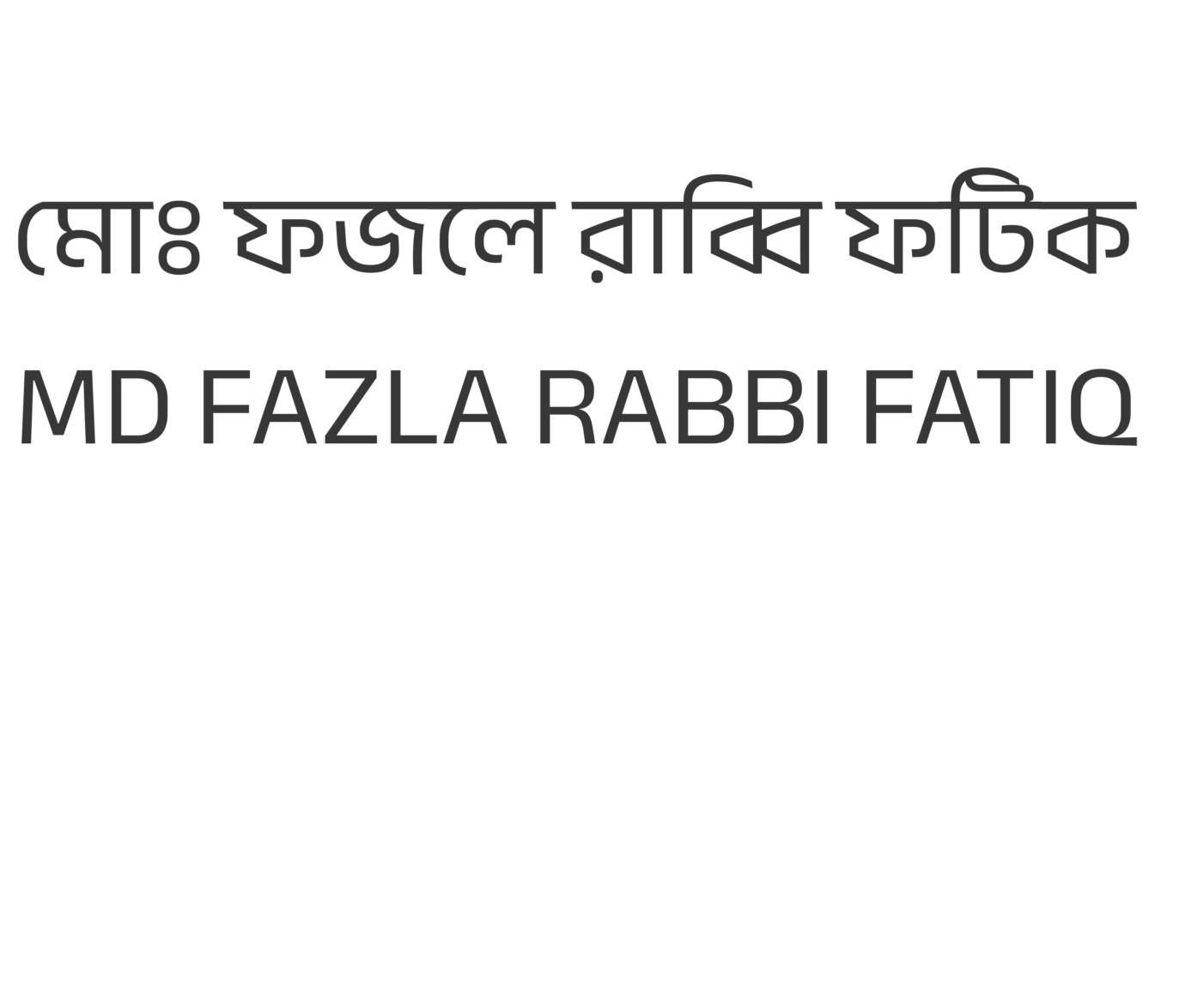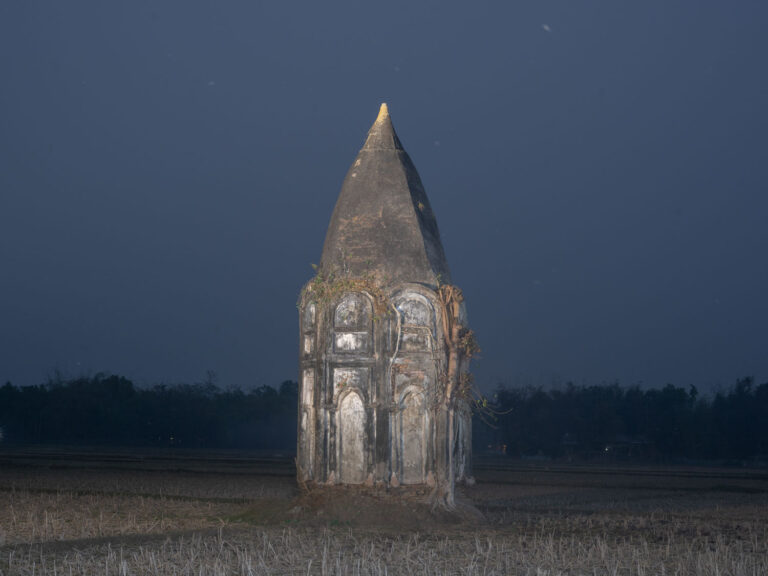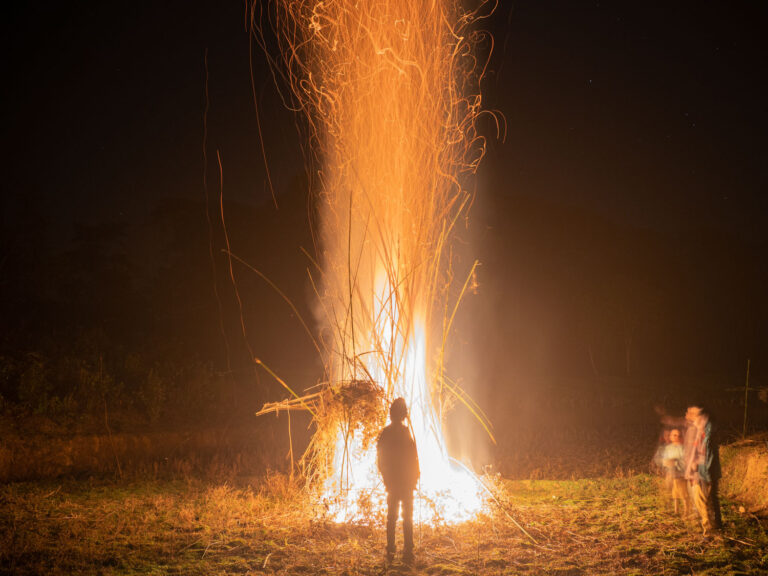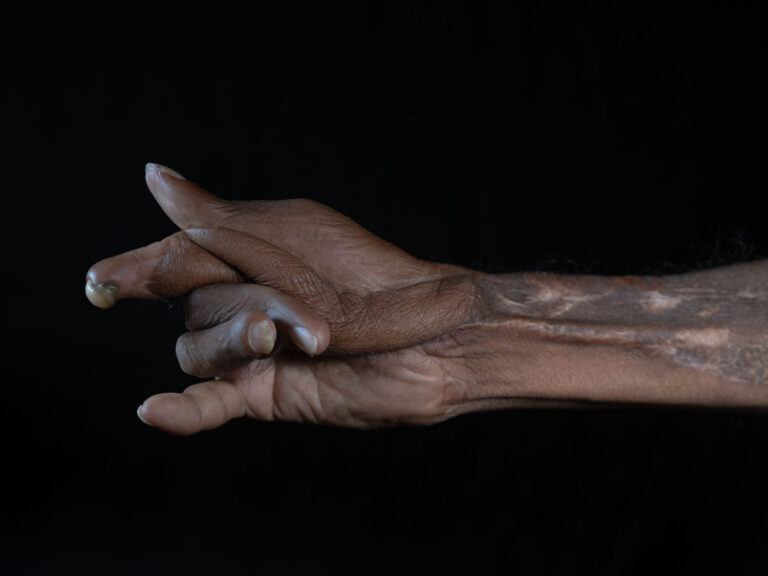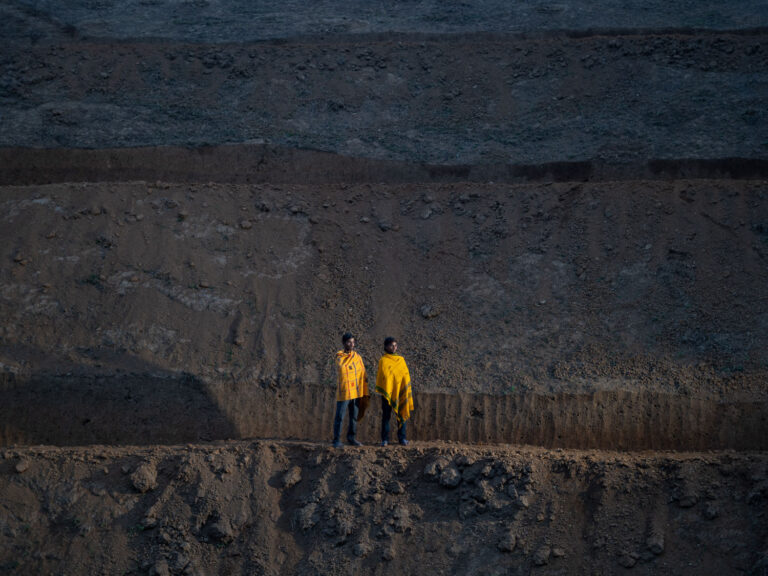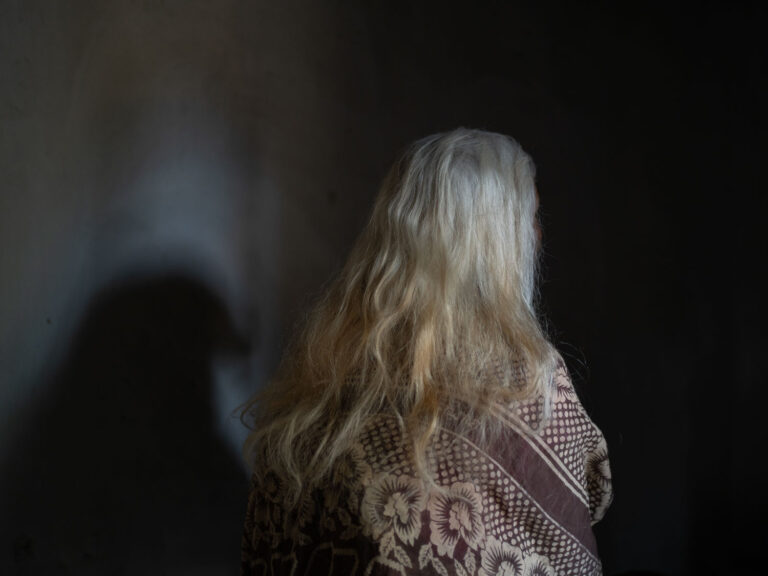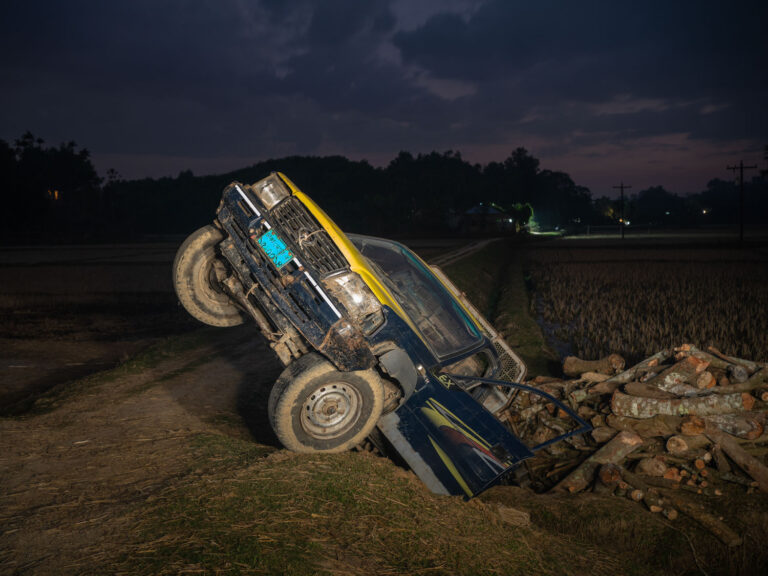Dark Garden
[2021 – Ongoing]
The place is gloomy yet beautiful, fireflies roam in the dark, water streams flow from the mountains, and the scenic beauty of the narrow muddy roads making way across the tea plantation sometimes feel like the world of magic reality. On the contrary, a hand of a worker who got crippled in an accident while working on a machine in a tea factory, brought us back to a complex reality.
In the middle of the nineteenth century, during the colonial period when the Tea plantation started in the Sylhet region of Bangladesh, a larger part of the plantation was occupied by the British merchants. People from different parts of greater India including Bihar, Odisha, Andhra Pradesh and Uttar Pradesh, were brought as workers to the tea garden. It was never easy and extremely hard to work in the enormous acres of plantation due to weather, heat and humidity. Today in Bangladesh there are nearly 167 Tea plantations and about 4,40,843 workers and family members in Bangladesh. These workers have different lifestyles, language and culture. Even after centuries of hardships and domination, they still couldn’t afford to own a piece of land for themselves. No one can save money from their earnings or move to start living in mainstream society. Their lives are tied in a cycle of earning daily wages which is equal to 1.56 USD. Still today even after ages, the plantation workers are living in the small mud houses in the middle of the tea garden. They are also deprived of safe water, sanitation, medical care, nutritious food and safe water, education, above all self-improvement. According to the Tree Plantation Labor Ordinance of 1986 and the Plantation Rules of 1986, it is the responsibility of the garden authorities to ensure the health care of the workers. But out of 167 gardens in the country, there are 1 MBBS doctor in only 6 of them. The ILO says 63% of workers are at risk. Among the workers, 72% suffer from abdominal pain, 74% from headaches and 64% from muscle aches. Most of the workers suffer from anemia. 84% of tea workers are women. About 91% of women workers were harassed by their bosses.
Tea workers started protesting inhuman working conditions and torture by the tea planters. On May 20, 1921, thousands of tea workers set off for their homeland leaving their workplaces, with the slogan of ‘Mulluk Cholo’ meaning ‘return to homeland’. As the protest march reached Meghna ghat in Chandpur, police opened fire, killing many workers. As the rest of the protesters fled, they were caught, tortured and sent back to work. They never got back home.
. Installation view, Wellcome Collection Museum, London, UK
Work in Progress…
